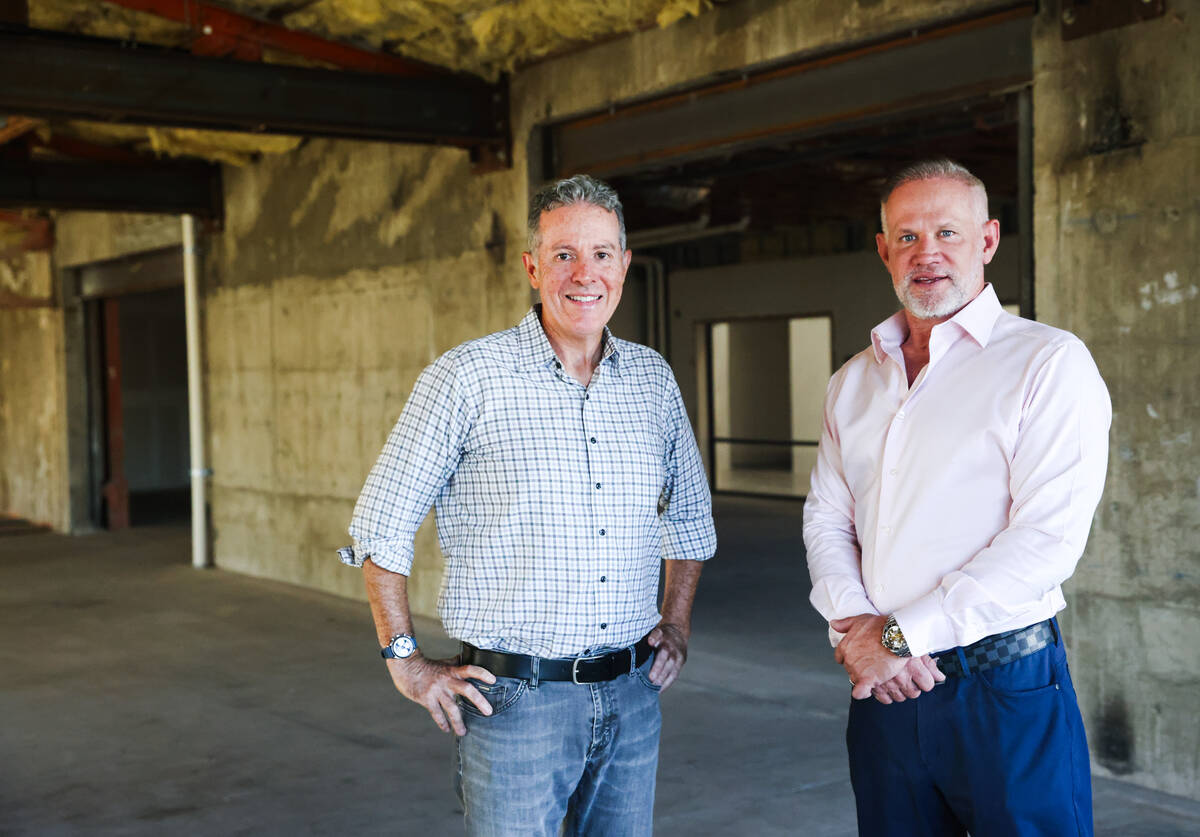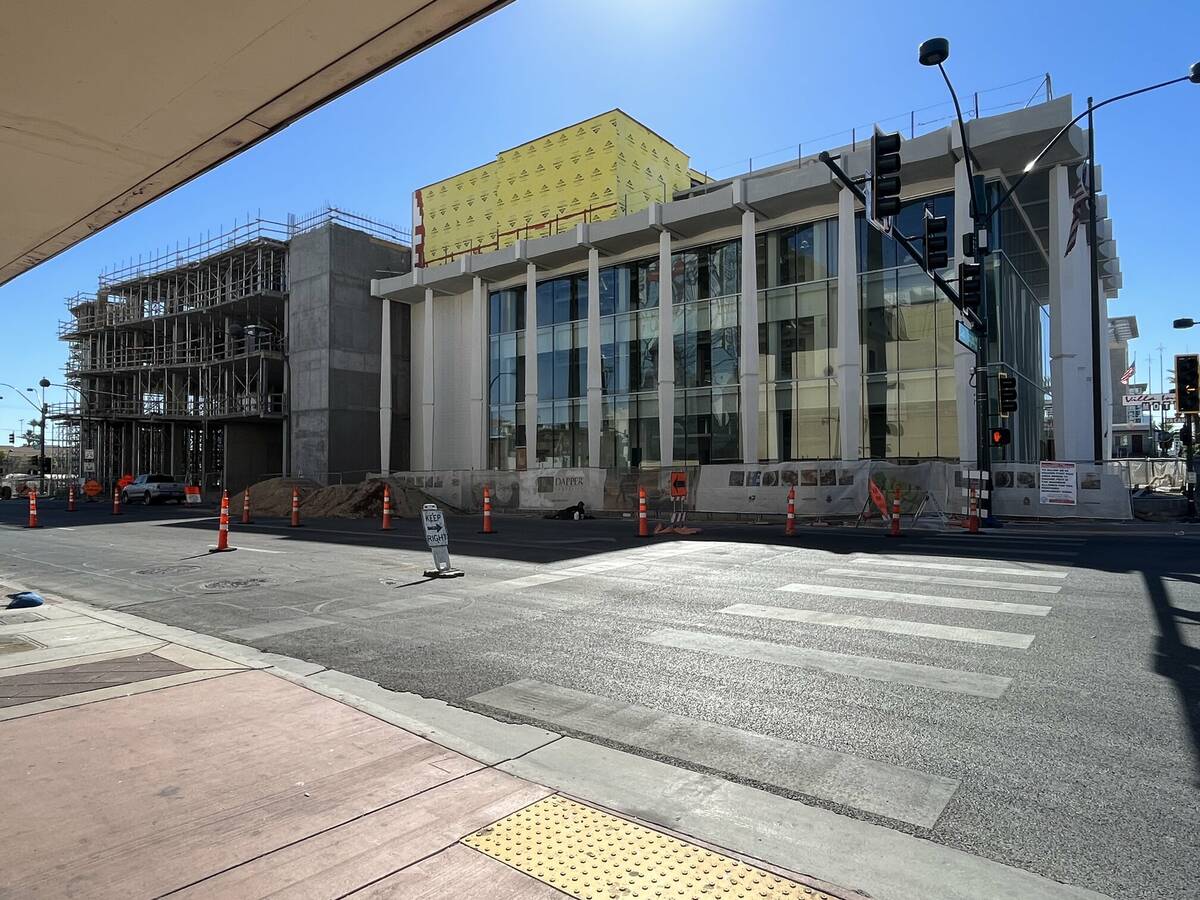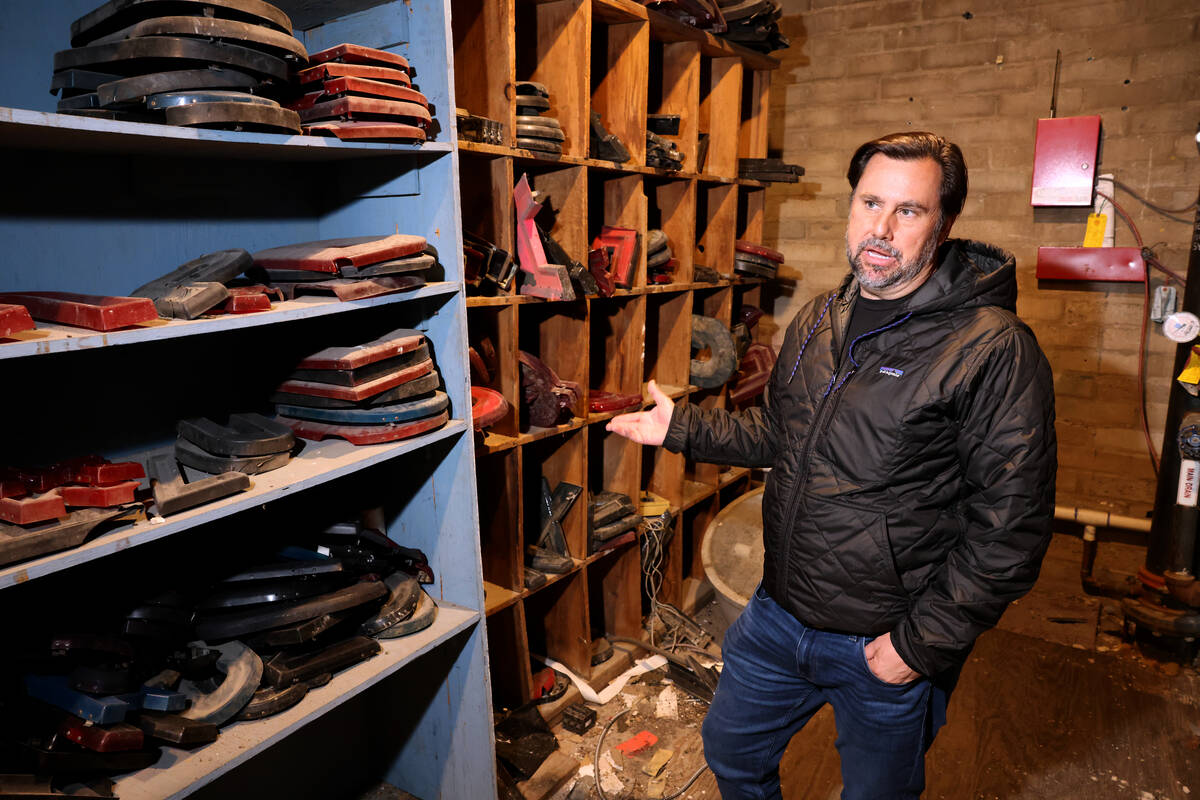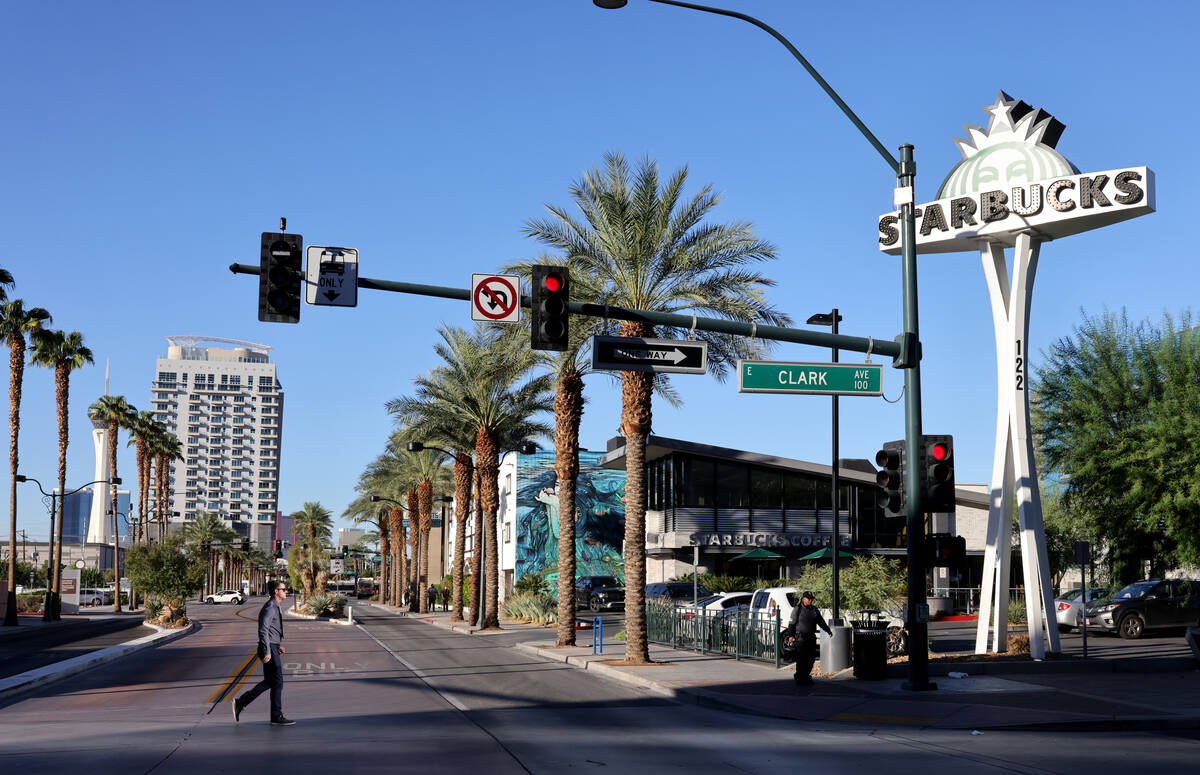Can Downtown Las Vegas lead an office space revival?
Jonathan Schwartz had a bunch of ideas for what to do with The Office in downtown after the city of Las Vegas Building Department moved out in 2011.
Schwartz considered turning the building at the corner of Las Vegas Boulevard and Gass Avenue he bought in 1999 into a hotel or apartments but decided on office condos. With renovations completed in stages over the past few years, the developer sought to sell office suites in the 40,000-square-foot, two-story building to multiple tenants after leasing the space to one tenant never panned out.
“We tried to lease the space candidly for years, and we couldn’t lease it out,” Schwartz, developer and owner of Miltson Consulting, said. “And then finally we came up with the concept of just gutting the space, building two central bathrooms, a hallway and access to all these suites.”
Schwartz is now hoping a bet on downtown Las Vegas seeing an office revitalization could help sell the remaining suites.
“This is really a classic, adaptive reuse project,” he said of the building originally constructed in 1963 for Nevada National Bank. “We didn’t demo the building, we didn’t tear it down, we’re building something that’s still got a good shell, and it’s a great location, it’s got an interesting historical look from Las Vegas Boulevard.”
The Office has two tenants, a law firm and a nonprofit, and has approximately 28,000 square feet remaining for purchase, with the expectation of having the building fully occupied by the end of 2024, Schwartz said.
Luring workers back to downtown
Schwartz’s timing may be perfect as a recent study shows downtown Las Vegas is leading the nation for returning foot traffic post-pandemic. But the question remains whether companies and their workers will return en masse to downtown cores, which is having a major impact on larger cities such as San Francisco and Los Angeles.
Las Vegas not having a distinct downtown business core proved somewhat helpful during the pandemic when remote work became the norm, kicking off a work-from-home revolution, said Marc Magliarditi, a first vice president with CBRE Group Inc. who focuses on office space.
“We didn’t benefit necessarily from the pandemic, but from the type of office market that we were, not being super dense and not having a CBD (central business district) that’s reliant on public transportation definitely helped,” he said. “And now we’re seeing through all of this that we are becoming a target for a lot of California companies, and it’s easier for them to bring their employee base instead of hiring new people because (in Las Vegas) everything is a close commute.”
Making workplaces attractive
Another downtown building, at 201 Las Vegas Blvd. South, is also being redeveloped. Woven Workspaces coworking occupies two floors of the building. The first floor, which is still under construction, is set to house a U.S. Postal Service branch and a Broken Yolk Cafe. A six-story parking garage is being constructed to the rear of the building. The bottom floor of the garage will include restaurants and pub offerings. The entire project is expected to be completed in February.
Dave Colling, chief executive officer at HB Workplaces, one of the partners of Woven Workspaces, said downtown Las Vegas has a lot of things going for it including historic buildings, food and beverage offerings, proximity to highways and a good geographical setting to entice some workers out of their home office setups and back into traditional settings.
“There are a lot of companies that are attracted to being in downtown Las Vegas,” he said. “You’ve got bigger companies that are trying to attract that younger worker that maybe doesn’t want to necessarily come back to the office, but then you also have companies that are looking to shed their big traditional office space and they’re looking to not necessarily downsize, but become more economical.”
The Las Vegas office space industry still has significant headwinds to overcome, and, as third-quarter Colliers International data shows, Southern Nevada’s office market took a downturn, with more space being vacated then occupied. The report showed no new office space came online in the third quarter.
There is also a looming uncertainty when it comes to the overall U.S. commercial office space market, accentuated most recently by the bankruptcy filings of coworking giant WeWork, which has two locations in Las Vegas.
The question facing the marketplace is whether commercial real estate could pull the entire U.S. economy down if large, vacant office spaces across the country either aren’t repurposed, or companies can’t find a way to get enough employees back into them to make them financially viable again.
J Dapper, owner and principal of Dapper Companies and Colling’s partner in Woven Workspaces, said data they are seeing shows employees don’t want to work from home 100 percent of the time, but they also don’t want to be chained to an office chair.
“All of the research out there does indicate that most employees do want to be in the office, but they want a combination, so this kind of hybrid work, and so that really is the future. There are firms where everybody is coming back and there are firms where nobody is coming back, but the vast majority of our customers, in our experience, the employees do want to be in the office, but it’s under a flexible schedule.”
Contact Patrick Blennerhassett at pblennerhassett@reviewjournal.com.






















